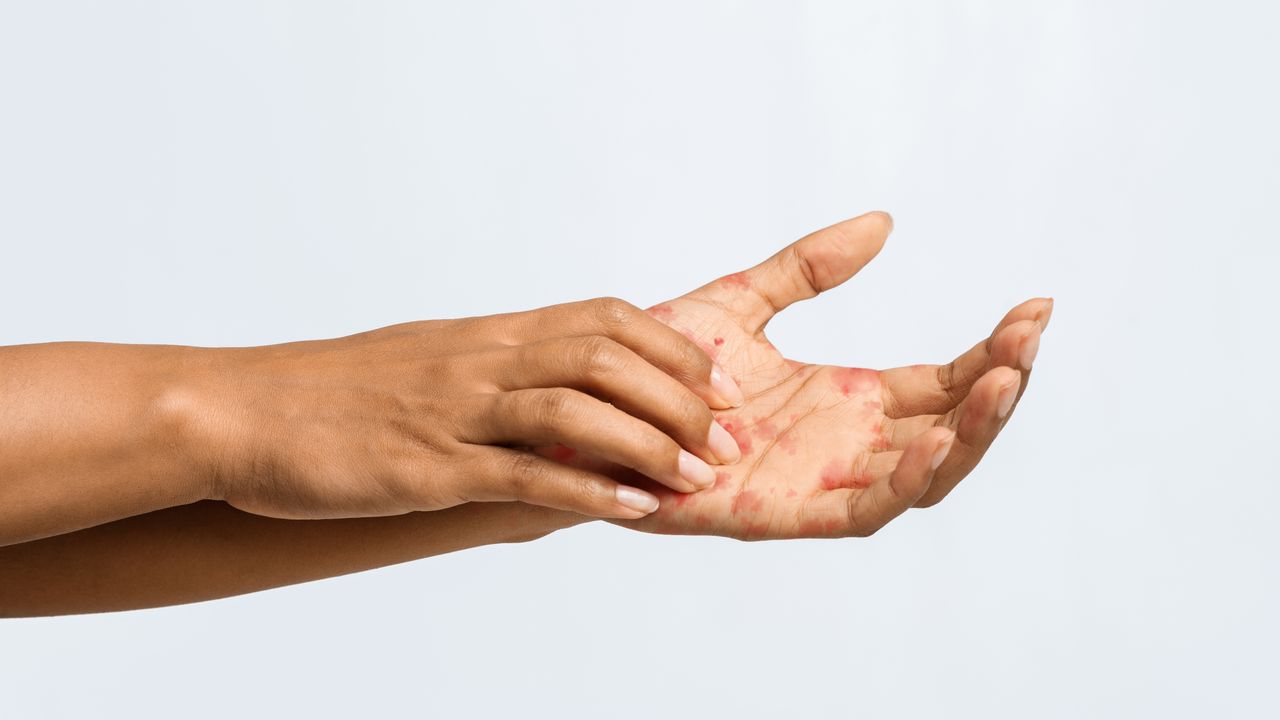“Financial barriers often delay care or make it hard to afford prescription treatments, which leads to more severe disease over time,” says Dr. Agbai. “There’s also data showing that lower socioeconomic status is associated with higher atopic dermatitis prevalence and worse outcomes.”
Getting better eczema care
“A lot of patients are looking for a smoking gun,” says Dr. Abuabara. “They hope to find something they can eliminate from their environment to fix their eczema.” While it’s unlikely that just one thing is causing their eczema flare-ups, the good news is that doctors have a lot of tools in their proverbial toolbox to improve your skin’s health—and so do you. Here are some steps that may sound unremarkable but can really help you get the most out of your care as a person of color.
Identify your triggers.
Some experts suggest keeping a flare journal or trigger diary, where you write down exactly what your skin has recently come into contact with that could have prompted symptoms. Remember that triggers can be both physical and emotional. “Stress influences our health and our skin,” says Dr. Abuabara, who remembers a Latina mom of two who was so busy caring for her family that she struggled to find time for appointments to help manage her eczema.
Meet with the right doctor.
When it comes to treating eczema, seeing your primary care physician may not be enough; some patients need specialized care. “Connect with a board-certified dermatologist who has experience with diverse skin tones,” says Dr. Agbai. “It really does make a difference in getting the right diagnosis and developing an effective treatment plan.” And if the first dermatologist you see isn’t a good fit, don’t be afraid to look elsewhere, Dr. Agbai adds. “Ask your physician about skin-of-color-specific presentations, and if they’re unsure, know that it’s okay to get a second opinion,” she says.
Speak up for yourself.
When you show up for your appointment, give your doctor as many details as possible about your situation. Bring your flare journal, and put your symptoms in context by telling your provider if, say, you’re experiencing itching that keeps you up at night or distracts you at work. You might even want to bring pictures of your flares to show the doctor if your skin’s appearance has improved by the time your appointment comes around. “Your voice matters, and advocating for your skin is a form of self-care and self-respect,” says Dr. Agbai. “You deserve a physician who takes your symptoms seriously and acknowledges how much they’re affecting your life.”
Find the right products—and follow your doctor’s orders.
For those with eczema, picking the right products is essential to help avoid flare-ups. You should use gentle, fragrance-free cleansers and moisturizers designed for sensitive skin, explains Dr. Agbai. Also, keep in mind that because of their low oil content, lotions aren’t usually moisturizing enough for eczema-prone skin. Instead, opt for oil-rich creams and ointments, which tend to help your skin retain moisture better.

